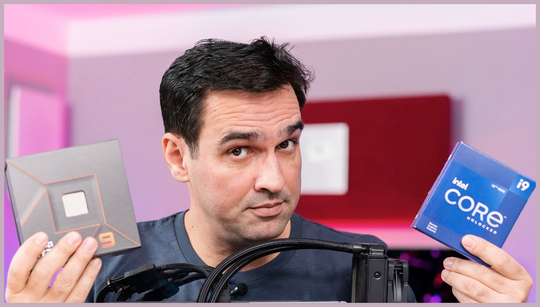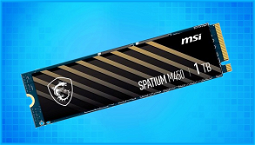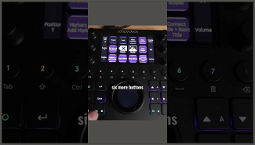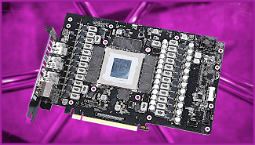We put AMD vs Intel to the test
It's a question that can spark endless debate among tech enthusiasts and PC gamers, with the resulting AMD vs Intel flamewars making it tricky to get unbiased advice about the best choice for your next processor. But in many cases, the answer is actually very clear: Intel's chips win for most users looking for the best balance of performance in both gaming and productivity at a more accessible price point.
But there's more to it than that. AMD's lineup of specialized X3D CPUs wins for PCs focused on gaming, while a few years ago, its mainstream Zen-based processors redefined our expectations for both the mainstream desktop and the HEDT markets, bringing more cores, more performance, and lower power requirements to the table.
We judge the chips on seven criteria based on what you plan to do with your PC, pricing, performance, driver support, power consumption, and security, giving us a clear view of the state of the competition. We'll also discuss the process nodes and architectures that influence the moving goalposts. However, each brand has its strengths and weaknesses, so which CPU brand you should buy depends mostly on what blend of features, price, and performance are important to you.
The best Intel processor
The best Intel CPU is:
For the most part, there are only two choices: AMD or Intel. There are a few other options out there, but they're mostly cheaper versions of one of the big two, or they're pointless, old, or both.
The latest 13th-Gen Raptor Lake series builds on Intel's hybrid architecture formula, which combines high-performance and efficiency cores into one package, to deliver a winning blend of performance in both gaming and productivity workloads, but that comes at the cost of higher power consumption than AMD's competing chips.
The latest versions of the Ryzen 7 series have reduced the pricing of its chips, while rolling our newer non-X models that reduce the price of entry. AM5 motherboards and DDR5 memory still carry a premium, muddying the value proposition, but AMD's powerful Ryzen 7000 "X3D" models utilize a breakthrough 3D chip-stacking tech to take the overwhelming lead in gaming performance, as you can see in our Ryzen 7 7800X3D review.
Unfortunately, the performance reductions in productivity applications are pretty severe, so you'll need to be aware of the tradeoffs. Intel currently offers the best blend of performance and overall value at an affordable price.
The past several years have seen AMD CPUs go from value-focused and power hungry chips to designs that deliver more cores, more performance, and lower power requirements. Intel fought back by slowly adding features and cores across its product stack, resulting in negative side effects, like more power consumption and heat.
However, the AMD vs Intel CPU conversation has changed recently, as Intel has taken the overall performance crown while undercutting AMD's price-to-performance ratio with the Raptor Lake chips. AMD isn't taking the challenge lying down, though, as its new lineup of 5nm Ryzen 7000 X3D chips use the company's new second-gen 3D V-Cache tech to impart tremendous gains in gaming performance, giving AMD the lead in terms of sheer gaming performance.
However, Intel moved forward to PCIe 5.0 and DDR5 technologies first, but AMD also now supports both with its Ryzen 7000 processors. DDR5 does add significant cost to motherboards, but Intel gives you the choice of selecting either DDR4 or DDR5 memory, while AMD only supports pricey DDR5 — a significant disadvantage given that it doesn't confer meaningful performance advantages.
Intel's chips also hold the crown on overclockability for both core and memory frequencies, and not by a small margin.
The latest AMD vs Intel CPU war isn't over yet, as AMD has told us that it plans to move to a hybrid architecture, which incorporated a blend of high-performance and efficiency cores like Intel's architecture, in the future, which should tighten the race.
However, for now, if you want the best in gaming or application performance, overclocking, or software support, Team Blue deserves your hard-earned dollars.
Best AMD processor
The best AMD CPU is:
The latest AMD vs Intel CPU war isn't over yet, as AMD has told us that it plans to move to a hybrid architecture, which incorporated a blend of high-performance and efficiency cores like Intel's architecture, in the future, which should tighten the race.














